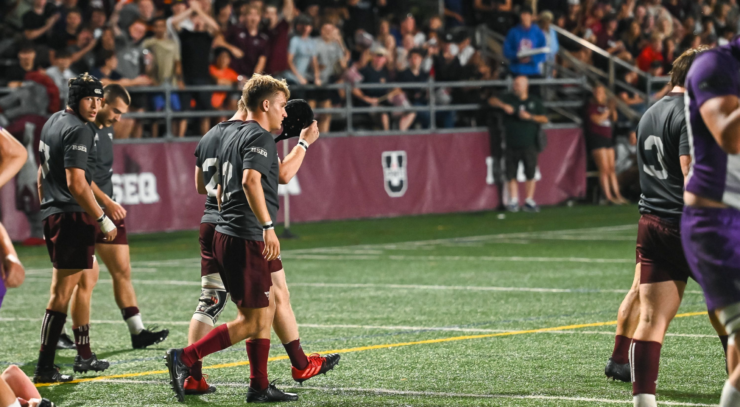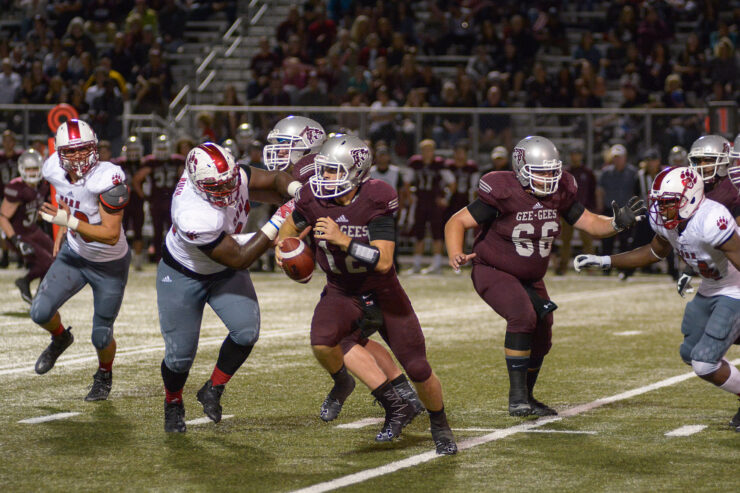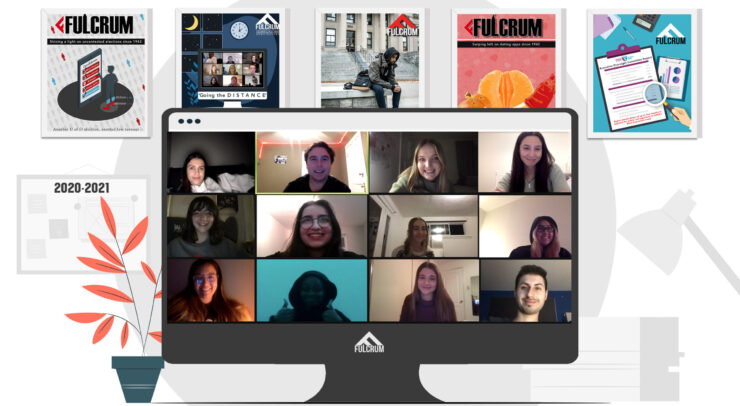Varsity Athletics informed the track and field team of their decision on July 7
On July 7, the University of Ottawa’s Varsity Athletics revoked the Gee-Gees track and field team’s varsity status.
With the current sport model at the U of O, athletic teams are split amongst three tiers: varsity, varsity club, and competitive club. The track and field team will face a significant loss of funding and privileges as they are moved from varsity to varsity club.
This decision comes from cuts to the athletic budget following the COVID-19 pandemic, after which Varsity Athletics had to reconsider the distribution of their funds. This eventually led to the conclusion of reclassifying the track and field program as a varsity club.
The news has left the track and field team feeling blindsided, undervalued and under-appreciated, especially with the upcoming season right around the corner.
Doyin Ogunremi, a sprinter on the track and field team, explained that the team has always been treated lesser than other varsity teams, and has endured and overcame a lot during the pandemic.
“We have always been treated as less than the other varsity teams, yet we have never complained. Now, they want to remove our funding completely… Our track team relies on outstanding and dedicated volunteer coaches because the university does not pay for our event coaches,” Ogunremi said.
“The little help we received from the university is now gone.”
The track and field team was one of the lowest funded varsity sports at the U of O. The program has relied on outside sources due to the U of O being unable to provide a track and field facility on campus. The team works with the Ottawa Lions Track and Field Club for training and facilities.
This became extremely pertinent during the pandemic. When the City of Ottawa facilities the team would normally train at were closed, athletes continued to train without a track, throwing circles, sandpits, etc.
Even so, the team has performed extremely well, earning provincial medals and national ranks.
The team has produced impressive athletes. Historically, the track and field team has had the most Gee-Gees go on to become Olympic athletes, proving their success as a program and future potential.
A runner on the team, Sia Mahajan, spoke about how the revoking of their status seems to disregard their accomplishments.
“We feel that not just our team, but our sport has been disrespected,” Mahajan said. “We want to uphold our tier one because just like every other sport, we are just as capable of achieving [noteworthy] accomplishments.”
Beyond their successful performance, the team offers important opportunities for athletes.
Firstly, it is a co-ed team allowing male and female athletes equal access to training. In addition, the team welcomes para-athletes to train and compete.
Right now, Bianca Borgella is on the Gee-Gees track and field team as a para-athlete. She is currently the Canadian Record Holder in the T13 100m, 200m and 400m, competitions. Without support and funding from the university, she may not be able to compete.
The team promotes inclusion even further with a high population of people of colour as well as female athletes. The diversity the track and field team offers in terms of gender, race, and disability outshines most other programs.
Various athletes, not just on the track and field team, rely on support and funding from their university in order to afford to play their sport.
“It should never be a pay to play situation,” Ogunremi said.
“To make it this way for a team that is so diverse like our team is very disrespectful and does not reflect what the university is supposed to stand for and what sport is supposed to stand for, being that everyone has equal opportunity and that there is equity across the board.”
For the track and field team, they are not only losing a title, but they are losing funding for team travel and competitions, coverage for team training in the High Performance Centre, as well as access to athletic therapy and mental health services on campus.
Ricky Landry, the U of O’s Chief Communications Officer, spoke on behalf of Sue Hylland, the director of Varsity Athletics.
“We understand that the decision has caused distress amongst our student-athletes,” Landry said. “When we made the announcement last week to reclassify our Track and Field and Cross-Country programs, the intention was always to identify ways to support them financially, but we needed a bit more time to finalize plans.”
The university has been conscious of budgetary constraints for a while.
“A year-end review was conducted in April 2022 during which it became evident that cost reductions would need to be made,” Landry said.
Despite Varsity Athletics being aware that budgets needed to be adjusted since April, and claiming to look for ways to support the team financially, the track and field athletes and staff themselves were not contacted before July 7.
“The decision has come very late,” said Brianna Asiamah, a thrower on the team. “This affects athletes [who just graduated from high school] who are choosing to come to the University of Ottawa to be on a varsity team. So taking away varsity status will change the commitments of athletes.”
Since the team was not contacted in the decision making process, the team feels they were not given the opportunity to work with Varsity Athletics to come up with a better solution.
“We understand that COVID-19 has led to budget concerns, but there’s other solutions than cutting a whole team. If we are upholding our [requirements as a] varsity team like the others, then maybe we can all have a specific reduction to fill the [budget] gaps rather than us just being dropped to tier 2.” Asiamah said.
Varsity Athletics claims that they have listened and heard the feedback from the track and field team following the announcement to revoke their status.
“We want to reiterate that we value all 32 of our programs, no matter their level of funding or service and it was in no way our intention to make these athletes feel any other way,” Landry said.
Still, the track and field team feels this decision is a human rights and respect issue. They are now working towards building awareness for the situation they’ve been put in, and are looking to get their varsity status returned to ensure every single one their athletes are able to compete.





